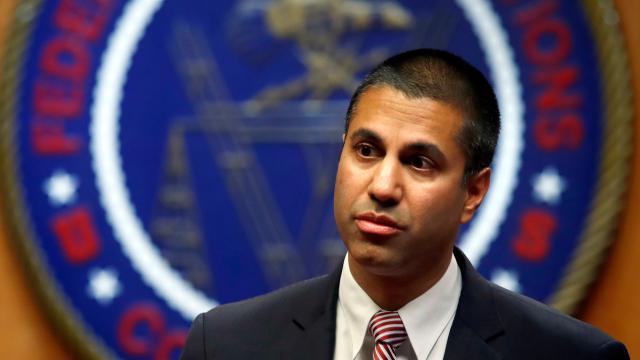Thousands of people have written to the Federal Communications Commission to lambast the agency over its controversial decision to give wireless carriers far more power over text messages sent to large groups.
Essentially, the FCC’s decision gives your carrier the ability to block or charge senders more for certain messages. As Gizmodo previously explained following the FCC’s decision in December, its critics claim that giving carriers more power over texts is a free speech issue that could negatively affect activists and nonprofits.
Eight senators who opposed the ruling wrote in a letter to FCC Chairman Ajit Pai in December that “carriers could force businesses, advocacy organisations, first responders, doctors, and any others” to pay more to reach their audiences via text messages.
The FCC, meanwhile, neatly packaged the announcement of its decision, which reclassifies SMS and MMS as “information services” rather than “telecommunication services” like phone calls, as a benefit to consumers, claiming that it will enable carriers to better protect them against robo-texts and spamming.
While we can likely collectively agree that spamming in any form is at least a perpetual annoyance and at worst a form of harassment, giving wireless carriers broad powers over text messages (that, by the way, also allows them to hike their fees) clearly creates a scenario ripe for a whole lot of bullshit.
In response to the FCC’s decision, John Bergmayer, an attorney at internet rights group Public Knowledge, filed a so-called petition for reconsideration on behalf of his organisation in an attempt to push the FCC to go back on its decision to give carriers more power over text messages. Tuesday is the last day for members of the public to write to the FCC in support of the Public Knowledge petition, and doing so will help bolster the case against groups that like the carriers’ newfound power, namely AT&T and telecoms trade group CTIA.
In addition to the group of senators, 20 groups, including Public Knowledge and the Electronic Frontier Foundation, have opposed the decision, writing in a group letter in December that “based on numerous incidents in the past, we fear that permitting carriers to block messages without any oversight will result in censoring time-critical speech, hamper efforts to organise political engagement and severely restrict the ability of civil rights organisations, religious organisations, and other non-commercial organisations to use texting platforms to their full capacity.”
Is the FCC likely to overturn its decision if enough letters are sent to the agency? Almost certainly not, but Bergmayer said writing to the FCC in support of the petition has two important purposes: establishing a public docket on the record on this issue, and creating something to show members of Congress that this is an issue their constituents care about.
Writing to the FCC about this issue also effectively lays some groundwork for the issue to be readdressed, as Josh Tabish, Technology Exchange Fellow with digital rights advocacy group Fight for the Future, explained to Gizmodo. According to Tabish, more than 7,500 people have written to the FCC through a website Fight for the Future built for the write-in campaign.
“Even if the FCC doesn’t ultimately decide to reconsider and classify text messages as a Title II service, it sends a really strong message that internet users are pissed about this, mobile phone users are unhappy, and they expect congressional action to correct the mistakes of Ajit Pai’s FCC,” he said. Who among us can’t get behind that action?
In the meantime, the FCC’s decision has effectively pushed regular SMS and MMS texts into the black hole of corporate telecoms. So please consider this a friendly reminder to use Signal now.
[Twitter]
